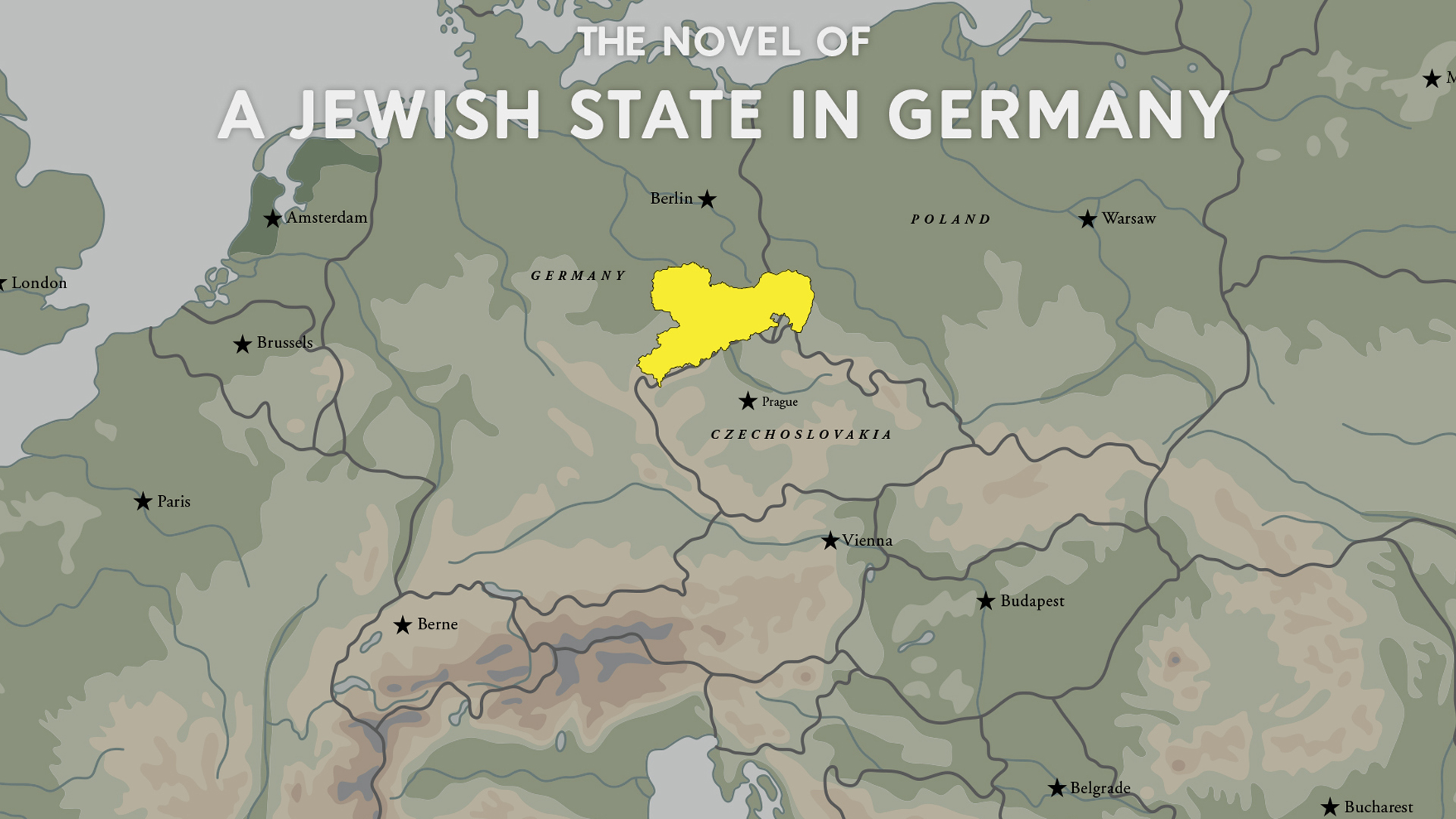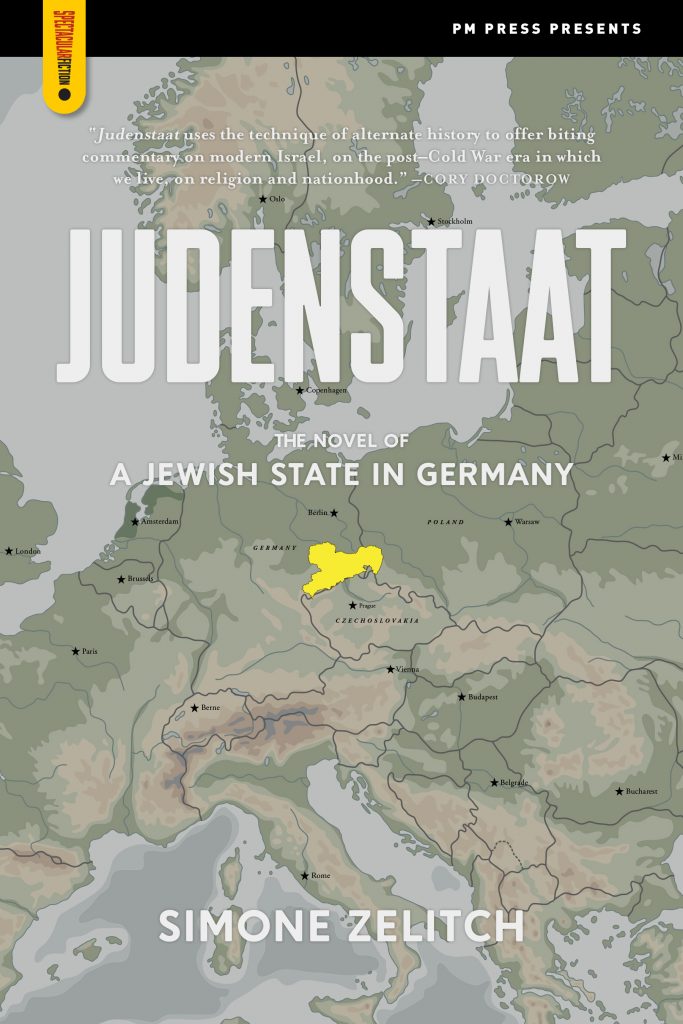By Ceridwen Christensen
Barnes & Noble
June 22nd, 2016
Plenty of alternate histories concern themselves with war and its aftermath. Philip K. Dick’s seminal example of the genre, The Man in the High Castle, deals with that age-old question, what if the Axis powers won the Second World War? There are alternate histories of the American Civil War—North America fractured into North and South and Louisiana and California, or any of a dozen nation-states. There are Regency Englands fighting proxy wars with Napoleon through magic, and Romes overthrown by Ostrogoths. Less often do we see a nation come to be in histories both actual and alternate: borders may change, but rarely is a new country formed.
Simone Zelitch’s Judenstaat begins in the run up to the 40-year anniversary of the titular country, this history’s post-war Jewish State, carved out of the federal state of Saxony in Germany. Israel does not exist. Judit Klemmer née Ginsburg is the film archivist for the National Museum, tasked with putting together something between a propaganda piece and a celebration of the birth of her country. While she works, the ghost of her Saxon husband Hans, who was assassinated on Liberation Day several years before, recriminates her silently. The dead always want vengeance, but Judit doesn’t quite live enough to give it to him.
Though the term is never used, Judenstaat is set in the era of Glasnost (openness), the Soviet period of societal loosening (which happened to occur right before the republic’s collapse). The country of Judenstaat has been much more aligned with the USSR than the United States since a political scandal in the ’60s. There’s a wall dividing it from the West, and it’s only now that the BBC and American cinema are beginning to trickle in. Judenstaat is also beginning to account for its beginnings, to look under the monuments for what is buried beneath. Judit began her career as an archeologist, and she still adheres to a form of historical materialism: there are facts, and there is context. Judit deals in facts.
Judit is given an incendiary note by a shadowy figure as she works on her film: “They lied about the murder.” She believes it refers to the death of her husband, but is almost too paralyzed by her grief to engage in the requisite sleuthing. This is not a novel of plucky heroines doggedly going after the truth, but something muddier and more real. Judit is the end result of her nation’s founding, as are they all: her husband, a Saxon with no parents and no history; her mother, a survivor of the camps; the Stasi agent, younger than Judit and inscrutable; the “black hats,” Hasidim who live separately, who deny the Holocaust, who are looking for the coming Messiah. She is struggling out of the grief of the grave, of the graves. Nations build monuments on the red soil of their dead.
She is also given a film reel of one of the founding fathers of Judenstaat standing over a mass grave. There’s something wrong with this reel; the man’s unshaven face an indicator of its placement in history, but that cannot be so. This is something that couldn’t have happened, something written out of the formation of the nation. (This isn’t dissimilar, in some ways, to the alternate history in The Man in the High Castle, embedded in the novel The Grasshopper Lies Heavy, or the war game in The United States of Japan. There are always other alternate histories within alternate histories.) The history Judit discovers (reluctantly, painfully) is inevitable, in a way, even though she is so completely outclassed by the forces that work for and against her.
Judenstaat is not an easy novel, to be read half-asleep like I often do. It is both demanding and quiet, in its way, like the ghost of Hans Klemmer standing amid the archival footage of a nation past its birthing throes. What does a nation mean to a people like the Jews after the Holocaust, and what does it mean 40 years down the road? Certainly, we can argue these meanings with regard to the real-world Israel in op-eds and uncomfortable holiday conversations. But this novel gives us something different—a thought experiment grounded hard in the bloody history of post-War Europe and the Cold War. It is both completely legible and purposely opaque, like history often is.







